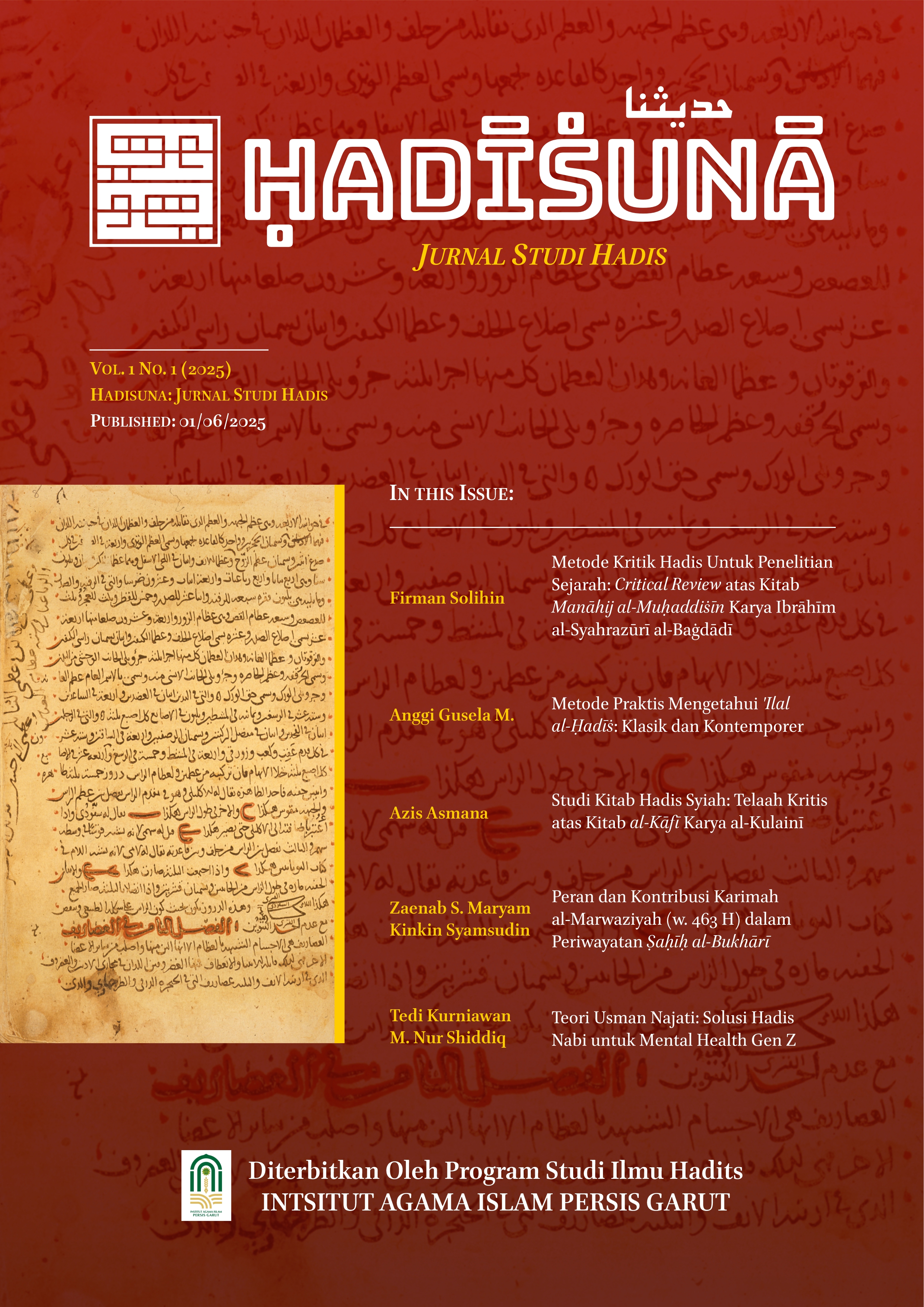Studi Kitab Hadis Syiah: Telaah Kritis atas Kitab al-Kāfī Karya al-Kulainī
Main Article Content
Abstract
This article presents a critical analysis of kitab al-Kāfī, the hadith collection that serves as a foundational text for the Twelver Shia (Iṡnā ʿAsharīyyah) tradition. The objective of this research is to conduct an in-depth examination of the book's profile, its unique methodological underpinnings, and the significant historical ambiguity surrounding its compiler, Abū Jaʿfar al-Kulaynī. Using a qualitative, library-based research method, this article investigates how al-Kāfī functioned as an instrument for consolidating Shia religious identity during the crucial period of the Lesser Occultation (al-Ġaibah al-Ṣuġrā). The main findings indicate that the structure and content of the book are inseparable from the doctrine of the Imamate, which is central to its epistemology. It also highlights the ongoing polemic between the Akhbārī and Uṣūlī schools regarding its authenticity status. This study concludes that the authority of al-Kāfī is a complex construct, resting not only on historical reality but also on the theological claims that support it, making the debates surrounding this book a reflection of the dynamics of clerical authority within the Shia tradition.

